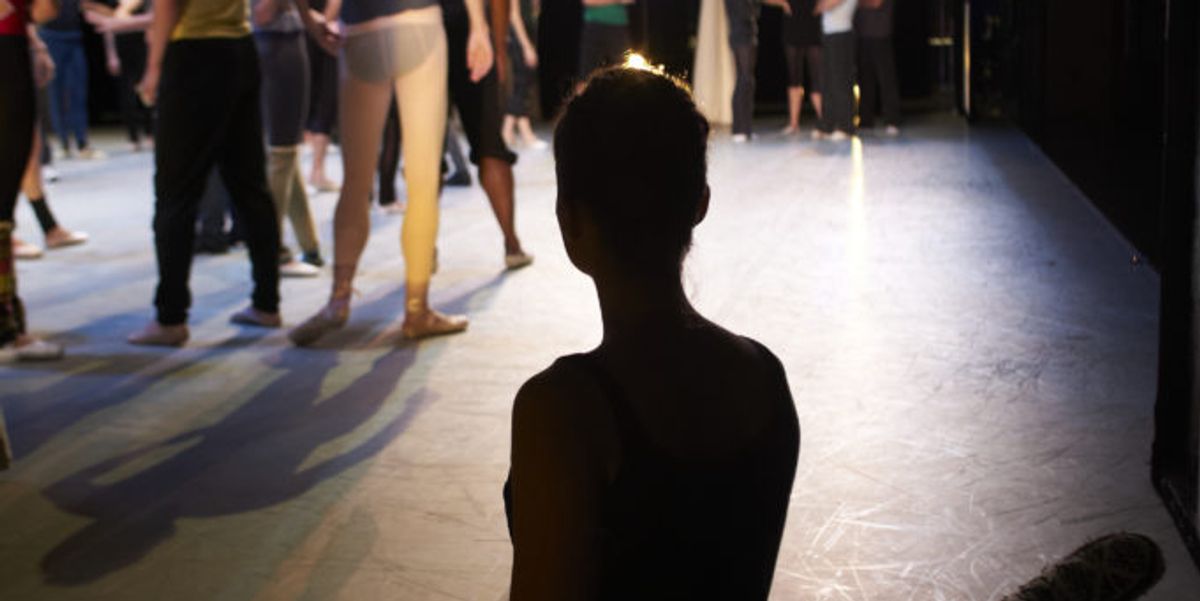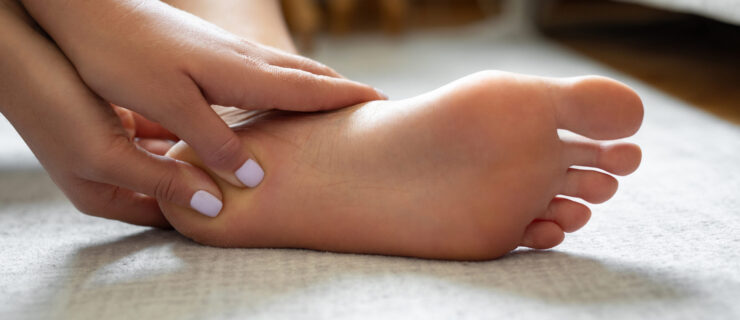Why Are We Still So Bad At Addressing Dancers' Mental Health?
“So why did you quit?”
It’s a question I’ve been asked hundreds of times since I stopped dancing over a decade ago. My answer has changed over the years as my own understanding of what lead me to walk away from greatest love of my life has become clearer.
“I had some injuries,” I would mutter nervously for the first few years. This seemed like the answer people understood most. Then it became, “I was just not very happy.” Finally, as I passed into my 30s, I began telling the uncomfortable truth: “I quit dancing because of untreated depression.”
It makes sense that people ask me “why?” I was a promising student. I left my family in upstate New York at 14 to train in the highest levels of Pittsburgh Ballet Theatre, and then San Francisco Ballet School. I spent my summers at the School of American Ballet and the Chautauqua festival program. I can say now what I was incapable of seeing then—I was a good dancer.
But I was never a confident dancer. I relied heavily on the praise of my teachers and casting to feel my self-worth. And over time, the micro-failures that dancers must overcome each day started to chip away at me. In my last year at SFBS, I would routinely cry in the studio. A missed pirouette or a class where I felt invisible to the teacher would completely dismantle me. Concerned teachers would stop me in the hallway with words of support, but my grit was too far gone.
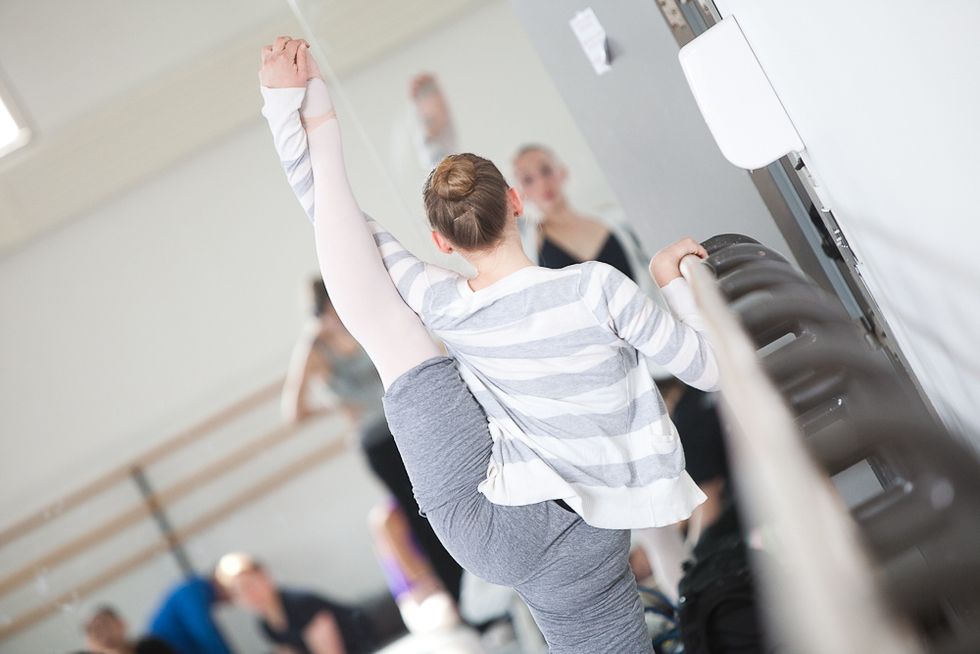 Matthew Murphy for Pointe
Matthew Murphy for Pointe
While dealing with back-to-back stress fractures, I was forced to sit in every single class that I missed for eight weeks and watch my peers surpass me. Sage dance therapist Dr. Bonnie Robson recently told me that despite the fact that injury is the most common reason for onset for depression in dancers, most injured dancers will see doctors, physical therapists and Pilates instructors while never seeing a mental health professional.
Three thousand miles from my parents and without a mentor, I learned my coping mechanisms from my peers. I thought being skinny would make me happy, so I tried all the ill-advised dieting techniques and then-still-legal ephedrine pills. I started self-medicating and at 18 I had developed a party resume that you would read about in a Rolling Stone profile. I remember sobbing to my mother on the phone, “I love dance, but it doesn’t love me.” On the worst days I considered that I would be less of a burden to the people that I loved if I were gone. It would be better than not dancing.
In the years since, I have had the privilege of conducting hundreds of interviews for articles I have written in Dance Magazine and other Dance Media publications. I have the handful of great dance therapists in the country piled up in my recent call list. My conversations with them and other dancers and dance-support professionals, combined with my own experience, has lead me to an unavoidable truth: I believe that dance institutions are failing their dancers with a lack of support for mental health.
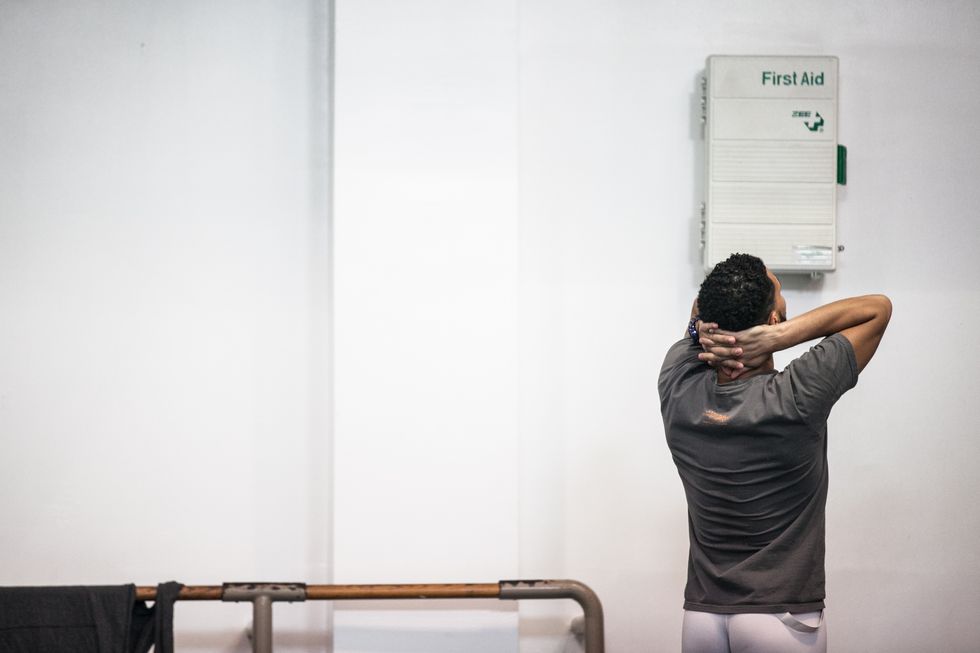 Quinn Wharton
Quinn Wharton
In a recent interview, Dr. Brian Goonan, who works with dancers at Houston Ballet Academy, told me that the same drive to succeed that make so many ballet students great may also predispose them to depression. And yet, as a dance writer, when I call up so many of the great training institutions in this country to ask for an interview with the psychologist they refer their dancers to, they can’t produce one. Houston Ballet Academy is the only school that I know of that makes regular office hours with a mental health professional available to their students in the studio. I hope that there are others I simply haven’t found.
But I believe that small steps can move this industry in the right direction. Based upon the countless interviews I’ve done with professionals on the mental health of dancers, I have a few steps I’d like dancers, parents and directors to consider:
Advice For Dancers
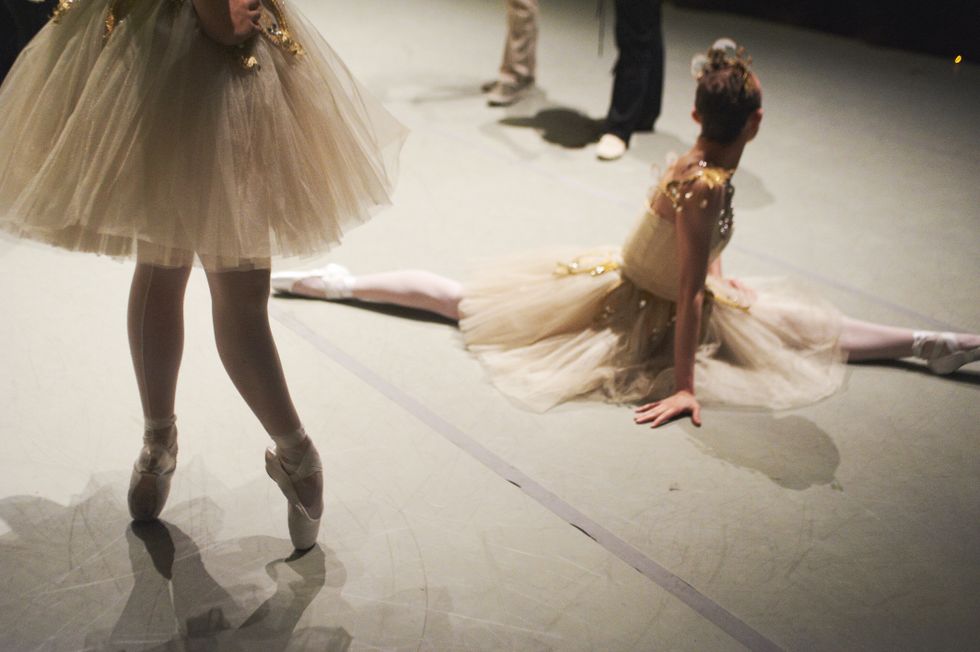 Jim Lafferty for Pointe
Jim Lafferty for Pointe
- Periods of darkness will come with this challenging pursuit, and that is normal. It does not make you weak to seek help for your mental well-being the same way that it does not make you weak to go to physical therapy or a nutritionist.
- If a friend or teacher tells you that they are worried about your mental state, listen. And know that this confrontation is hard for them. It is an act of love, not a criticism of your character.
- Ask for help when you need it. It is not normal to feel sad every day for two weeks or more.
- Understand that the most difficult time in your training is also the time that you are most statistically likely to experience depression. Dr. Robson told me that people are most likely to experience their first depression in their late teens and early twenties.
- If/when you leave dance, consider a career in mental health if it interests you. Reach out to local studios and companies and offer your services.
- Feeling like you want to quit is a common symptom of depression, according to Dr. Goonan. It does not necessarily mean that you will, or should stop dancing.
Advice For Parents
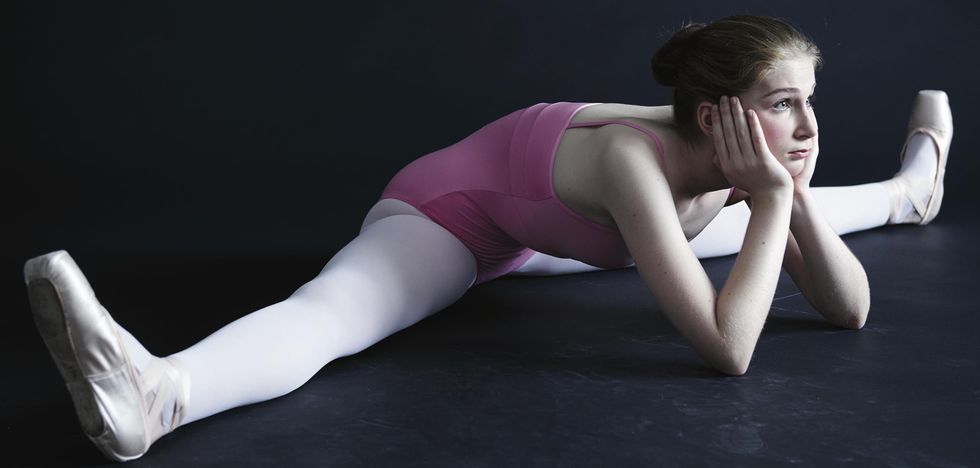 Nathan Sayers
Nathan Sayers
- When your child registers with a new school, ask who they will be referred to if they need mental health support. Ask for that person’s name and number in case the dancer doesn’t want to go through the school to see them. They may not be able to give it to you, and this doesn’t mean you should forbid your child from going, but if enough parents start asking, it will be heard.
- Help your child establish reasonable goals.
-
Avoid the “my girl is going to be a principal dancer” cocktail talk
; your child will feel that. And remember that criticism of their dancing should only come from their teachers. - Check in with your kids about more than just what is going on in the studio. Ask them how they are feeling, and if they are enjoying anything outside of dance.
Advice For Teachers and Directors
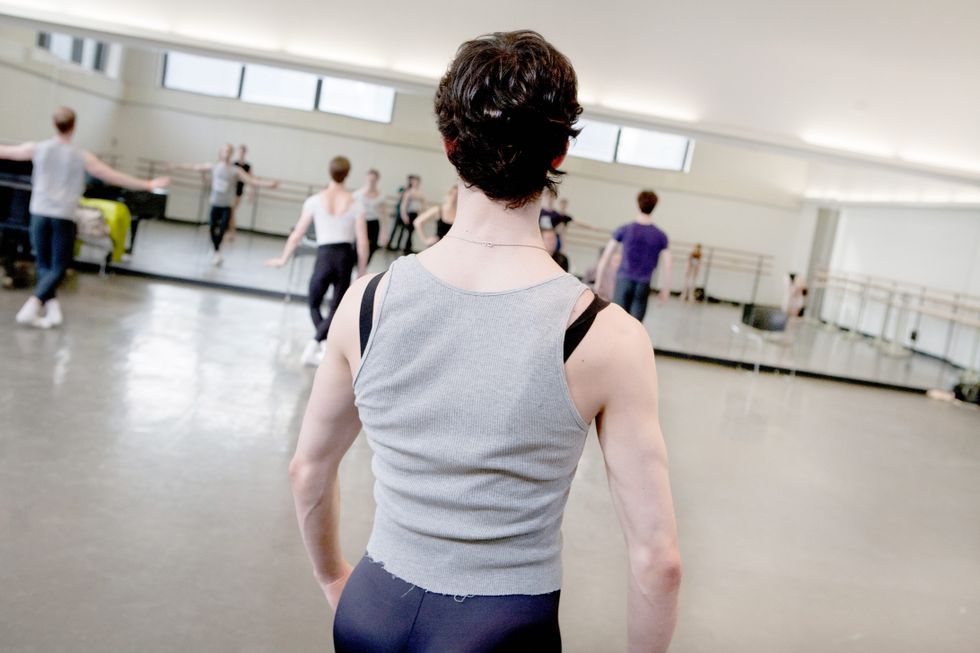 Matthew Murphy for Pointe
Matthew Murphy for Pointe
- Teach your dancers to treat their mental wellness with the same care that they do their physical wellness. Break the stigma. Share your own experiences and give them permission through your acceptance to seek help when they need it.
- Do not reserve calling in mental health professionals for cases that involve eating disorders. There are a litany of issues that a dancer may face that are just as devastating to their health.
- If you are an institution for which dancers move away from home to train, you are responsible for their well-being. Build a close relationship with a psychologist who has spent time in the studio. The dancers should know who that person is, have met them multiple times, and know how to reach them directly.
- Even if you are a small school, do some research on the mental health offerings in your area. Meet the psychologists and explain the specific challenges that dancers face.
- If a once-driven student seems like they are trying less hard, skipping classes or acting lazy in class these are signals that something is wrong. Don’t give up on them.
When I quit dancing, it felt like an eventuality, something that was completely out of my control. In retrospect, I see that with proper attention to the mental health challenges I was facing, I could have potentially made it much further. I was fortunate to share the studio with many great dancers in my training years—many of whom have since been on the cover of this magazine. The constant trait that I see among the dancers who have “made it” is resilience. It isn’t always that girl with all the perfect feet who ends up with a dream career. Talent will take you far, but emotional strength will take you farther.
I have been amazed and thrilled to see how much the dance world has changed since I left it. Nutrition discussions are moving from low-fat to eating whole foods. Cross training is the norm and new styles of movement and body types are slowly finding their place. But this taboo remains, and it is too important to ignore.
